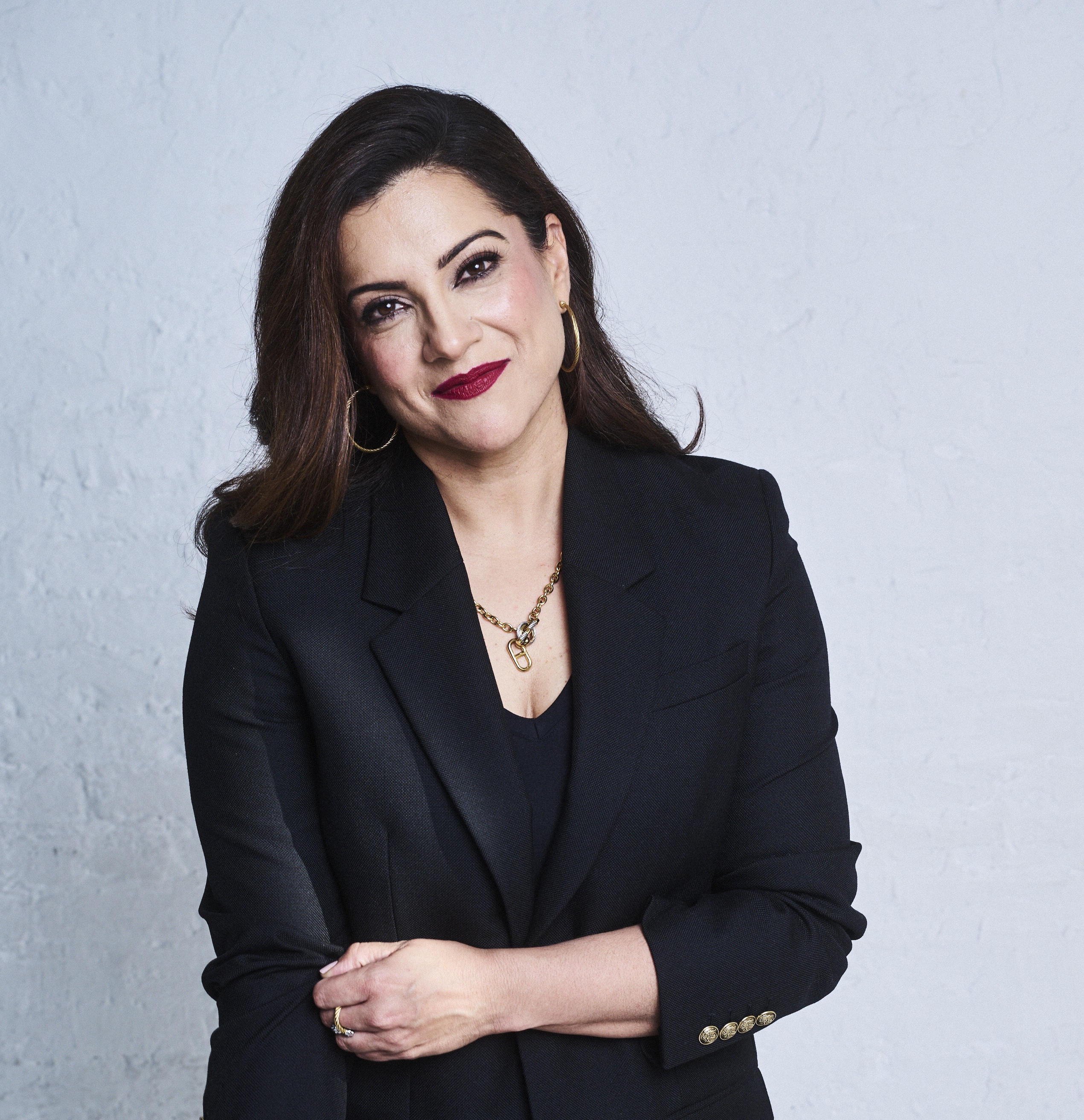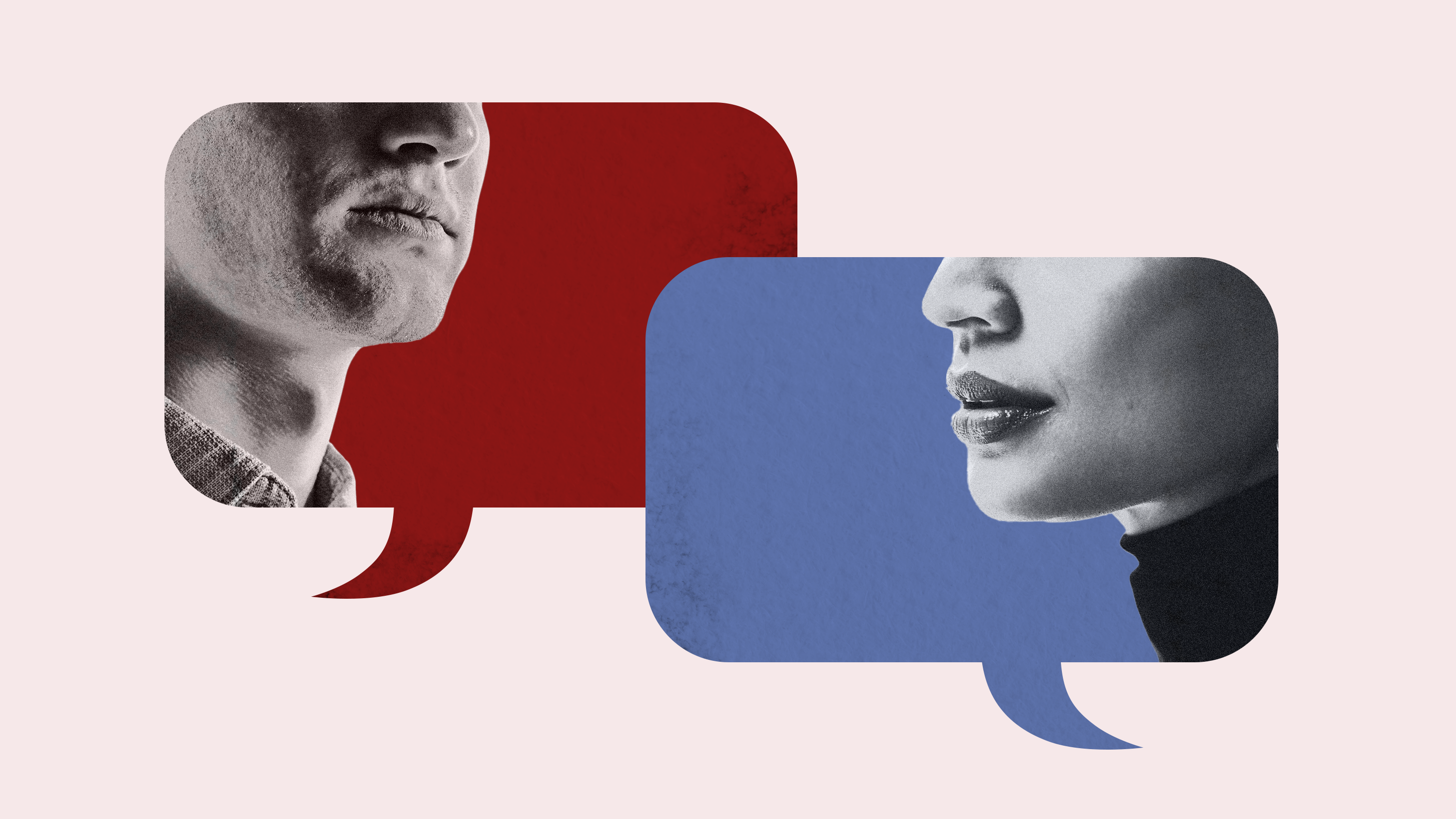To Elect a Woman President, We Need Men
If we’re serious about expanding opportunities for women, we can’t ignore half the electorate.


If watching the election returns roll in gave you a sense of déjà vu, you’re not alone: For the third time in a row, a majority of white women voted to send Donald Trump to the White House.
But Trump also made huge gains among men. Young white men without college degrees, yes—but nearly half of Latino men voted for him, too. He even doubled his support among Black men (though Black men, on the whole, supported Kamala Harris).
We’ve known for a long time that gender would be a defining issue of this election, but it would be a grave mistake to think that the story ends now that the ballots are counted. If anything, our work has just begun. We can’t rally our girlfriends to the polls every four years and expect to win—it’s a losing strategy to ignore half the electorate. If we’re serious about defending women’s opportunities in this country, then we’re going to have to do the last thing in the world we ever expected to do: start talking about men’s opportunities.
We can’t rally our girlfriends to the polls every four years and expect to win—it’s a losing strategy to ignore half the electorate.
Men in America feel left behind, and in this election cycle, those grievances have been well-documented. While women have made enormous economic gains over the past several decades, the parallel story has been starkly different for men, and even more so for men of color. Fewer young men are pursuing higher education, while jobs accessible without college degrees are dwindling. At the same time, those men are experiencing the twin epidemics of loneliness and mental illness, exacerbated by toxic masculine standards of stoicism and intense pressure to “man up.” A recent survey from the gender equality organization Equimundo found that two-thirds of 18- to 30-year-old men believed that nobody knew them well. And nearly three in every four “deaths of despair”—those involving suicide, drug overdose, and/or alcoholism—are men.
So, it’s not surprising that men are increasingly drawn to someone like Trump, with his red-blooded, fist-pumping promises to make America—and manhood—great again. The GOP knows it, too. It’s why the Trump campaign courted brawny icons like Hulk Hogan at the RNC and interviews with “manosphere” influencers like Joe Rogan that generate cult-like followings of young men. And it’s precisely because they crave connection and visibility that they’re drawn in by the nostalgia surrounding “traditional” manhood. These parasocial relationships, whether with streamers or politicians, act as powerful bait for young men seeking purpose in a world they think is stacked against them.
The consequences are staggering: a Pew research poll found that 40 percent of young, male Trump supporters believed that women’s gains have come at the expense of men. In short, these men have been convinced that power is a gendered, zero-sum game, and that leaders like Trump might lend them a stronger hand to play.

But if there’s anyone who understands that kind of thinking is BS, it’s women. When women have a fair shot to reach their full potential, we’re all better off for it: Economists estimate that, if women’s labor force participation were fully equal to men’s, it would boost U.S. GDP by almost 20 percent.
I should know: I’ve been fighting for women’s and girls’ opportunities for my entire career. Back when I was building Girls Who Code, I’d have parents ask me: “But Ms. Saujani, what about the boys?” It used to really piss me off. Were they missing the entire point?
But I’m starting to see where they were coming from. We’ve been laser-focused on advancing opportunities for women, and rightfully so. We’re barely hanging on to the gains we’ve already made—whether we’re talking about the pay gap getting bigger for the first time in two decades or the devastating loss of our fundamental reproductive rights.
But the reality is that we can’t build the democracy we need to achieve any of that without men. And right now, we’re shutting them down and pushing them away.
We talk a lot about the kind of future we want to build for our girls, but today, I’m thinking about the kind of culture I’d like my sons to grow up in.
If we simply tell men to suck it up and get over their discomfort with powerful women (as former president Barack Obama did), I fear that we’ll be the ones missing the point. We’ve got to put in the work to truly understand the issues facing men. Yes, it may be hard—or even feel counterintuitive for those of us who have been fighting for gender equality. But to deny that men are struggling will just make the problem worse.
We have to make sure we’re not just the party of opportunity for women, but opportunity for everyone. That starts with shifting the way we talk to men and about men—and, crucially, to and about the boys who will grow up to be men. No one wants to be a part of a movement that ignores or even denigrates them. We need to find a new way forward and expose the con that men have fallen prey to: that our gain means their loss.
That doesn’t mean diluting our message, though. Take Michelle Obama’s recent speech at a Harris rally in Michigan, where she made a powerful, visceral case for men to support abortion access. “Your daughter could be the one too terrified to call the doctor if she’s bleeding during an unexpected pregnancy,” she reminded them. Men’s lives, too, could be “totally upended by an unwanted pregnancy.”
We need to find a new way forward and expose the con that men have fallen prey to: that our gain means their loss.
Nor does it mean that women have to do this on our own. Men should be our partners in this work, as it's not our problem to solve alone. We need men reinforcing the idea that masculinity and misogyny are not one in the same. When some guy says something gross and sexist, we need other men to get in there and tell them to knock it off.
We talk a lot about the kind of future we want to build for our girls, but today, I’m thinking about the kind of culture I’d like my sons to grow up in. I want them to be strong and tender. I want them to have positive male friendships based in openness and empathy, not machismo and misogyny. And I want them to challenge the structural inequities girls face without wondering if boys are worse off for it.
Our boys grow up into men, and those men will vote. We should care about who they’re voting for.
Reshma Saujani is a leading activist, the host of the podcast "My So Called Midlife," the founder of Girls Who Code, and the founder and CEO of Moms First (formerly Marshall Plan for Moms). She has spent more than a decade building movements to fight for women and girls’ economic empowerment, working to close the gender gap in the tech sector, and most recently fighting for the structural changes moms need and deserve, including affordable child care, paid leave, and equal pay. She is a New York Times bestselling author of several books including PAY UP: The Future of Women and Work (And Why It’s Different Than You Think), Brave, Not Perfect, and the Girls Who Code book series. As a leading voice on women’s empowerment, her 2023 Smith College Commencement speech on imposter syndrome has more than 15 million views, and her influential TED talk, “Teach girls, bravery not perfection,” has more than 54 million views globally. Reshma began her career as an attorney and Democratic organizer. In 2010, she surged onto the political scene as the first Indian American woman to run for U.S. Congress. Reshma lives in New York City with her husband, Nihal, and their sons, Shaan and Sai. Opinions expressed here are her own, not those of Moms First.
-
 James Middleton Shares Why He Was "Breathless and Flustered" During Meeting With Queen Elizabeth
James Middleton Shares Why He Was "Breathless and Flustered" During Meeting With Queen Elizabeth"I heard a snort of laughter and looked past the Queen to see everyone in the room stifling their giggles."
By Kristin Contino
-
 This Modern Princess Will Break a 600-Year-Old Tradition When She Takes the Throne
This Modern Princess Will Break a 600-Year-Old Tradition When She Takes the ThronePrincess Ingrid Alexandra of Norway will follow in a long-ago ruler's footsteps.
By Kristin Contino
-
 Hailey Bieber's "Favorite Jacket" Is Actually One She Designed
Hailey Bieber's "Favorite Jacket" Is Actually One She DesignedIt's a piece for husband Justin Bieber's new brand.
By Halie LeSavage